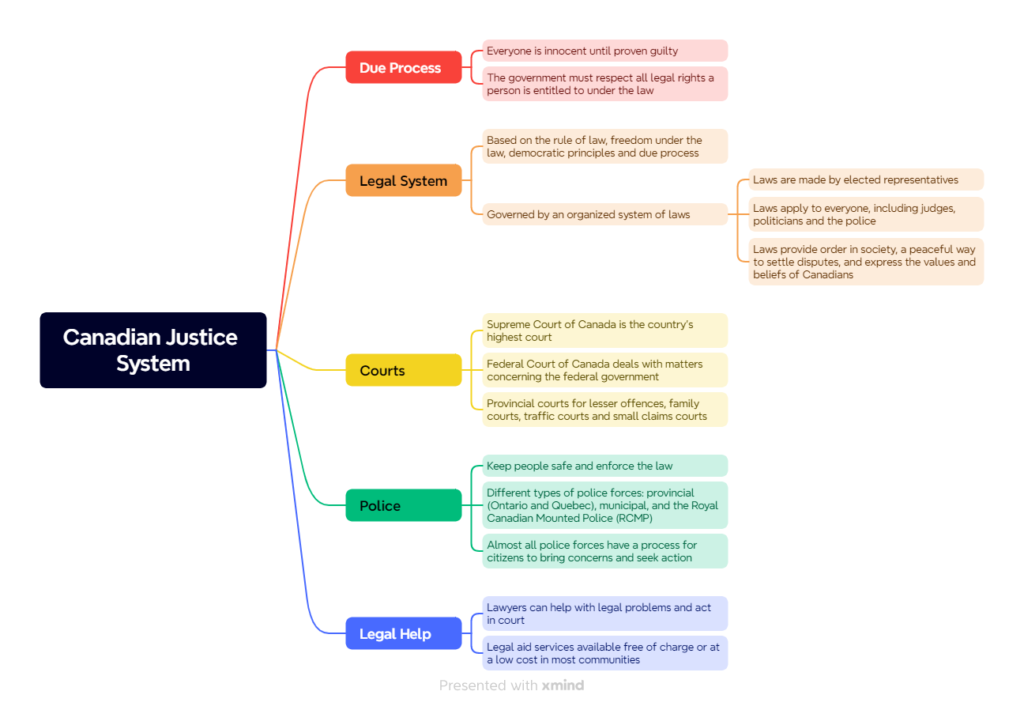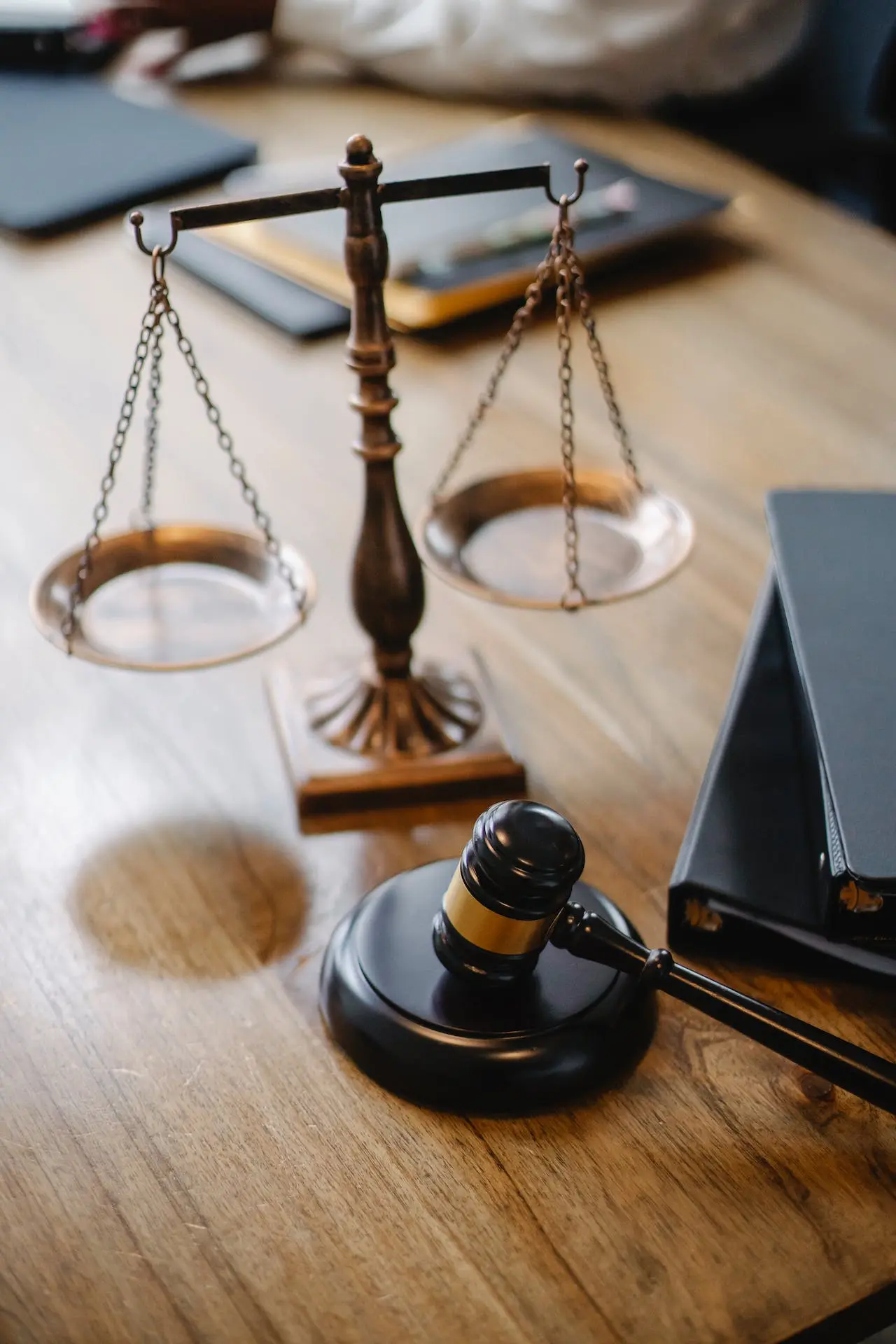You can find the official study guide for The Justice System on the Citizenship and Immigration Canada website.
At a Glance
Here are the key points to remember about the justice system in Canada:
- Canadian Justice System: Guarantees everyone due process under the law, with a presumption of innocence in criminal matters.
- Canada’s Legal System: Based on the rule of law, freedom under the law, democratic principles, and due process. The government must respect all legal rights a person is entitled to under the law.
- Laws: Made by elected representatives, intended to guide people, provide order in society, settle disputes peacefully, and express the values and beliefs of Canadians. They apply to everyone, including judges, politicians, and the police.
- Courts: The Supreme Court of Canada is the highest court. The Federal Court deals with matters concerning the federal government. Most provinces have an appeal court and a trial court. There are also provincial courts for lesser offences, family courts, traffic courts, and small claims courts.
- Police: Their role is to keep people safe and enforce the law. There are different types of police in Canada, including provincial police forces, municipal police departments, and the Royal Canadian Mounted Police (RCMP). The police are there to help and can be questioned about their service or conduct.
- Legal Help: Lawyers can help with legal problems and represent you in court. Legal aid services are available free of charge or at a low cost for those who cannot afford a lawyer.
Mind Map

Justice System
In Canada, the justice system is designed to ensure that everyone is treated fairly under the law. This system is built on the principle of “innocent until proven guilty” in criminal cases.
The foundation of Canada’s legal system includes the rule of law, liberty under the law, democratic values, and due process. Due process refers to the government’s obligation to respect all the legal rights a person has under the law. Canada operates under a structured system of laws, which are written guidelines meant to direct individuals in our society. These laws are established by elected representatives. Disputes are resolved by the courts, and the laws are enforced by the police. Everyone in Canada, including judges, politicians, and police officers, is subject to the law. The purpose of our laws is to maintain societal order, provide a peaceful method for resolving disputes, and reflect the values and beliefs of Canadians.
Courts
The Supreme Court of Canada is the highest court in the country. The Federal Court of Canada handles issues related to the federal government. Most provinces have an appeal court and a trial court, sometimes referred to as the Court of Queen’s Bench or the Supreme Court. There are also provincial courts for minor offences, family courts, traffic courts, and small claims courts for civil cases involving small amounts of money.
Police
The role of the police is to ensure public safety and enforce the law. The police can assist in various situations—whether there’s been an accident, theft, assault, witnessing a crime, or a missing person.
Canada has various types of police forces. Provincial police forces exist in Ontario and Quebec, and municipal police departments are present in all provinces. The Royal Canadian Mounted Police (RCMP) enforces federal laws across Canada and serves as the provincial police in all provinces and territories, except Ontario and Quebec, as well as in some municipalities. It’s important to remember that the police are there to assist you.
You also have the right to question the police about their service or conduct if necessary. Nearly all police forces in Canada have a procedure for addressing concerns and seeking action.
Legal Assistance
Lawyers can assist with legal issues and represent you in court. If you’re unable to afford a lawyer, most communities offer legal aid services either free of charge or at a reduced cost.
Test Your Knowledge on The Justice System in Canada
Take the full test – 20 Questions.



Leave a Reply